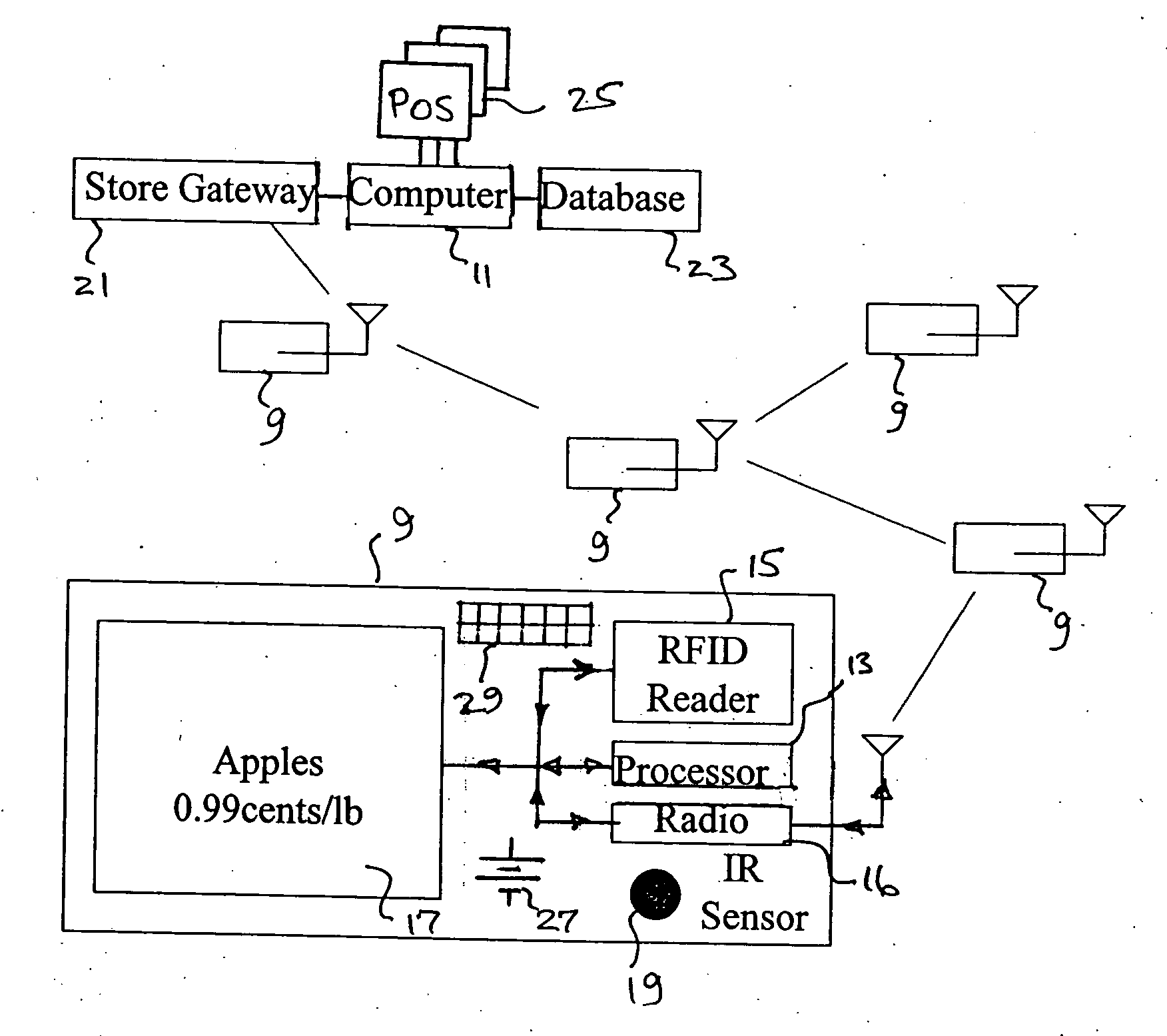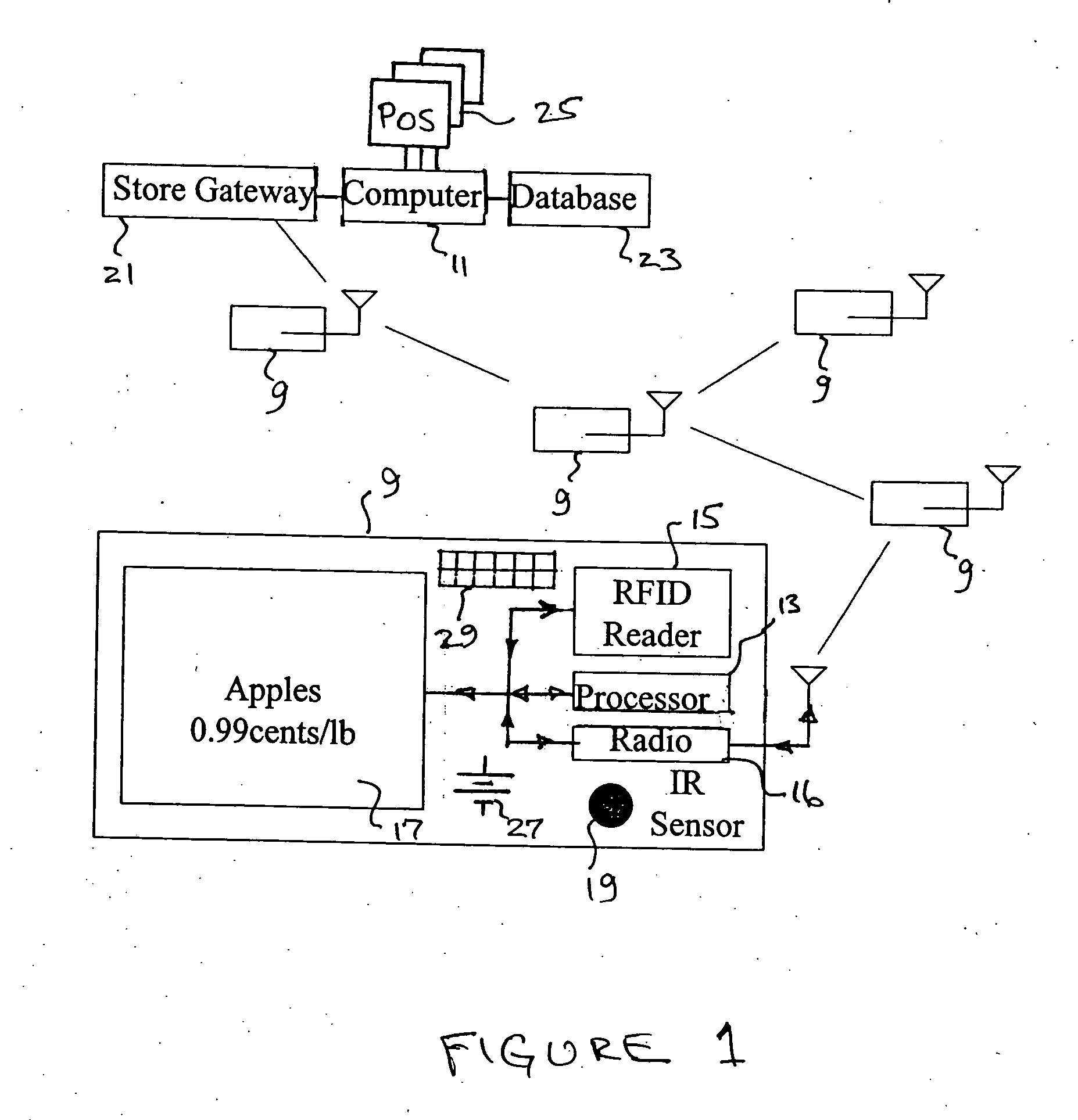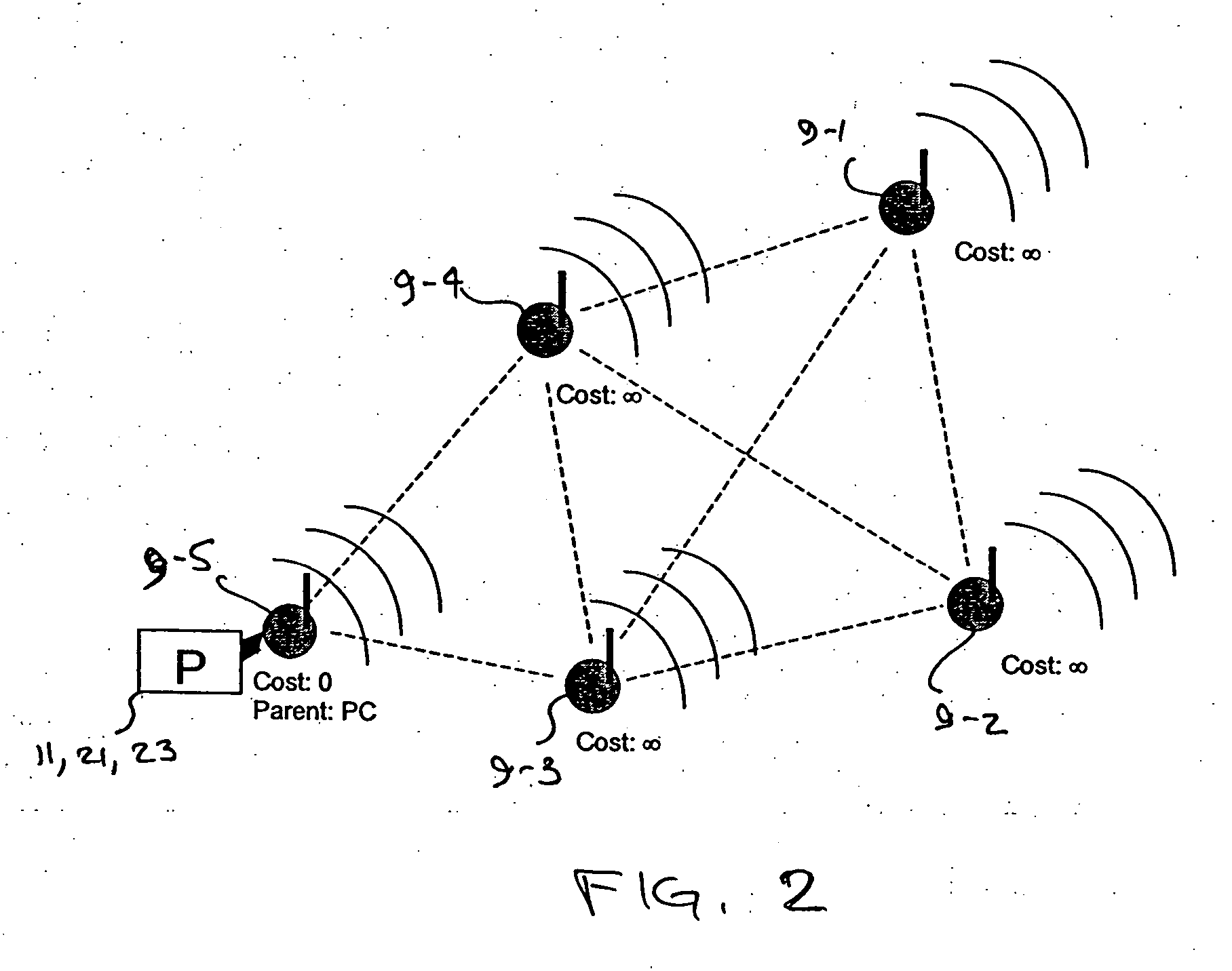Adaptive sensing network
a sensing network and adaptive technology, applied in the field of adaptive networks, can solve the problems of not addressing the change of posted prices, notoriously slow and expensive practice, and delayed computerized managemen
- Summary
- Abstract
- Description
- Claims
- Application Information
AI Technical Summary
Benefits of technology
Problems solved by technology
Method used
Image
Examples
Embodiment Construction
[0011] Referring now to the pictorial block diagram of FIG. 1, there is shown a plural number of networked product modules 9 that may be physically distributed in spaced-apart array over an area or region remote from a central or main computer 11. The networked product modules may be specifically distributed, for example, among clusters of canned goods, or dairy products or fresh produce, or the like, within a retailing establishment such as a supermarket. Each module 9 includes an optional infra-red radiation sensor 19, and a processor 13 that controls operation of an RFID sensor 15, and may control an optional display 17, as later described herein. Each module 9 includes a communication channel 16 via radio link or other electromagnetic radiation for transmitting and receiving data signals between the networked product modules 9. The processor 13 in each module 9 is programmed to transmit to or receive and relay from adjacent modules 9 the data signals that are developed at each m...
PUM
 Login to View More
Login to View More Abstract
Description
Claims
Application Information
 Login to View More
Login to View More - R&D
- Intellectual Property
- Life Sciences
- Materials
- Tech Scout
- Unparalleled Data Quality
- Higher Quality Content
- 60% Fewer Hallucinations
Browse by: Latest US Patents, China's latest patents, Technical Efficacy Thesaurus, Application Domain, Technology Topic, Popular Technical Reports.
© 2025 PatSnap. All rights reserved.Legal|Privacy policy|Modern Slavery Act Transparency Statement|Sitemap|About US| Contact US: help@patsnap.com



